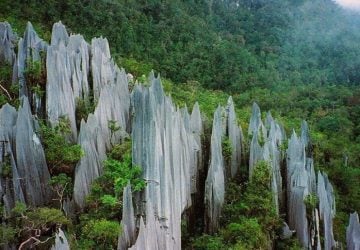Discover the natural beauty of national parks with our tips for enjoying wildlife and breathtaking scenery.
1. Choosing the Right National Park
When planning your visit, consider what type of wildlife and scenery you're very interested in experiencing. Different parks offer unique ecosystems and landscapes. For example:
Yellowstone National Park
: Renowned for its diverse wildlife including bison, elk, and bears. The geothermal features are equally captivating.Yosemite National Park
: Famous for its stunning granite cliffs, waterfalls, and giant sequoias.Great Smoky Mountains National Park
: Known for its lush forests, abundant wildlife, and mist-covered mountains.
2. Top Times to Visit for Wildlife and Scenery
Seasonal Considerations
:-
Spring
: Ideal for seeing baby animals and blooming flowers.-
Summer
: Offers the top weather for hiking and exploring but can be crowded.-
Autumn
: Known for beautiful fall foliage and mating seasons for some animals.-
Winter
: Peaceful and less crowded, ideal for spotting wildlife like elk and wolves in snowy environments.
3. Essential Gear for National Park Adventures
Binoculars
: Essential for spotting distant wildlife without disturbing them.Camera
: Capture the stunning scenery and wildlife.Field Guides
: Handy for identifying plants and animals.
4. Wildlife Etiquette and Safety Tips
Respect Wildlife:
- Maintain a safe distance: Use binoculars or zoom lenses to get closer views without disturbing the animals.- Do not feed wildlife: Human food can be harmful to them.- Keep pets under control: Pets can disturb wildlife and are often prohibited in certain areas.
Safety First:
- Always be aware of your surroundings.- Carry bear spray in regions where bears are common.- Learn about local wildlife safety instructions.
5. Capturing the Scenery Perfectly
Photography Tips
:-
Golden Hours
: Early morning and late afternoon provide the top lighting for photography.-
Rule of Thirds
: Position the main subjects off-center to create a balanced and interesting shot.-
Long Exposure
: Useful for capturing motion in waterfalls or rivers.
6. Top Hiking Trails for Scenery and Wildlife
Yellowstone
:-
Lamar Valley Trail
: Excellent for spotting wolves, bison, and birdlife.-
Fairy Falls Trail
: Beautiful views of waterfalls and geothermal features.
Yosemite
:-
Mist Trail
: Offers close-up views of Vernal and Nevada Falls.-
Mariposa Grove
: Home to giant sequoias, which are wondrous to behold.
Great Smoky Mountains
:-
Cades Cove Loop
: A great place to see white-tailed deer, black bears, and wild turkeys.-
Alum Cave Trail
: Known for its natural arches and stunning vistas.
7. Conservation Efforts in National Parks
Why Conservation Matters
:- Park environments are delicate and home to endangered species.- Conservation efforts help mitigate the impacts of climate change and human activity.
How to Contribute
:- Follow Leave No Trace principles.- Volunteer for conservation projects.- Support organizations dedicated to preserving wildlife and natural habitats.
8. Resources for Planning Your Visit
Information Sources
:-
National Park Service Website
: Offers up-to-date information on park conditions, fees, and activities.-
Visitor Centers
: Staff can provide maps, trail recommendations, and safety tips.-
Mobile Apps
: Apps like AllTrails and Chimani offer detailed guides and offline maps.
9. Special Experiences in National Parks
Ranger-Led Tours
: Learn about the park's wildlife and scenery from experts.Wildlife Photography Tours
: Some parks offer specialized tours for photography enthusiasts.Night Sky Programs
: Many parks have programs for star-gazing, taking advantage of their low light pollution.
Conclusion
Visiting national parks offers endless opportunities to connect with nature, observe wildlife in their natural habitat, and admire stunning scenery. By planning ahead and following these tips, you can ensure a memorable and responsible adventure.
Remember to pack your camera, respect the wildlife, and enjoy the unique beauty that each national park has to offer! Happy exploring!









